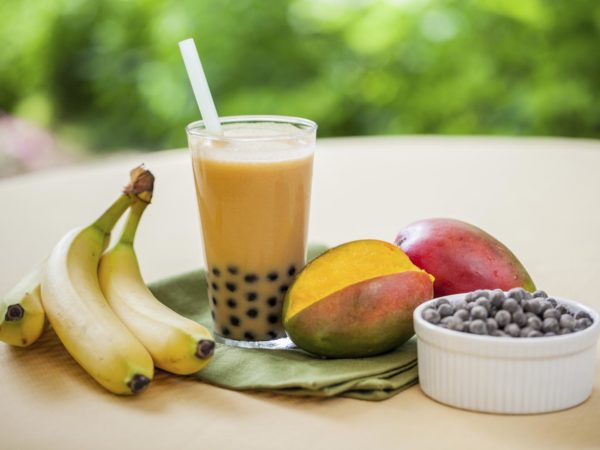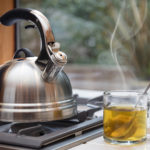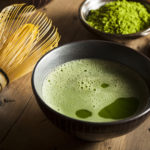Is Boba Tea Bad?
What can you tell me about the safety of drinking boba tea? My teenage kids love it, but I worry that it is high in calories. And now I’ve heard that it may contain cancer-causing substances.
Andrew Weil, M.D. | March 28, 2019

Boba tea (also called pearl tea or bubble tea) is a sweet drink that combines milk, flavored tea and tapioca pearls that are sucked up through an extra-large straw and chewed. The pearls have a soft, chewy consistency similar to that of gummy candy. Boba tea was introduced in Taiwan in the 1980s, quickly spread through Southeast Asia and has become very popular among young people in the U.S. and in Europe. The tapioca pearls usually are black and are made from cassava starch, sweet potato and brown sugar. Sometimes, white tapioca pearls are used – these are made from cassava starch, caramel and chamomile root and have a different flavor.
The calorie counts for boba teas depend on how much you’re served, but in general, these are high-calorie, high-fat drinks. A 16-ounce serving may have as many as 440 calories, with more than 200 of those from fat. Worse, a study published in 2017 reported that a 32 ounce serving of boba milk tea that includes jelly and egg pudding supplies between 250 percent and 384 percent of the recommended maximum daily intake of sugar for men and women, respectively. U.S. dietary guidelines suggest limiting added sugar intake to below 10 percent of total daily calories. Based on a 2,000-calorie diet, this means no more than 200 calories of sugar per day.
The study authors advise that you can cut down on boba calories by choosing tea without the milk, requesting lower sugar options (half sugar or one-third sugar) and avoiding such added ingredients as pudding, jelly and tapioca.
I can reassure you, however, about much publicized findings from Germany in 2012 that tapioca pearls from boba tea contained traces of the chemicals styrene and acetophenone, which are regulated by the FDA as flavoring agents. These chemicals were misidentified as PCB’s (polychlorinated biphenyls), which have been associated with liver cancer.
If you or your kids like boba tea, I suggest consuming it rarely given its high sugar and fat content.
Andrew Weil, M.D.
Source:
Jae Eun Min et al, “Calories and sugars in boba milk tea: implications for obesity risk in Asian Pacific Islanders,” Food Science & Nutrition, January 2017, doi:10.1002/fsn3.362












